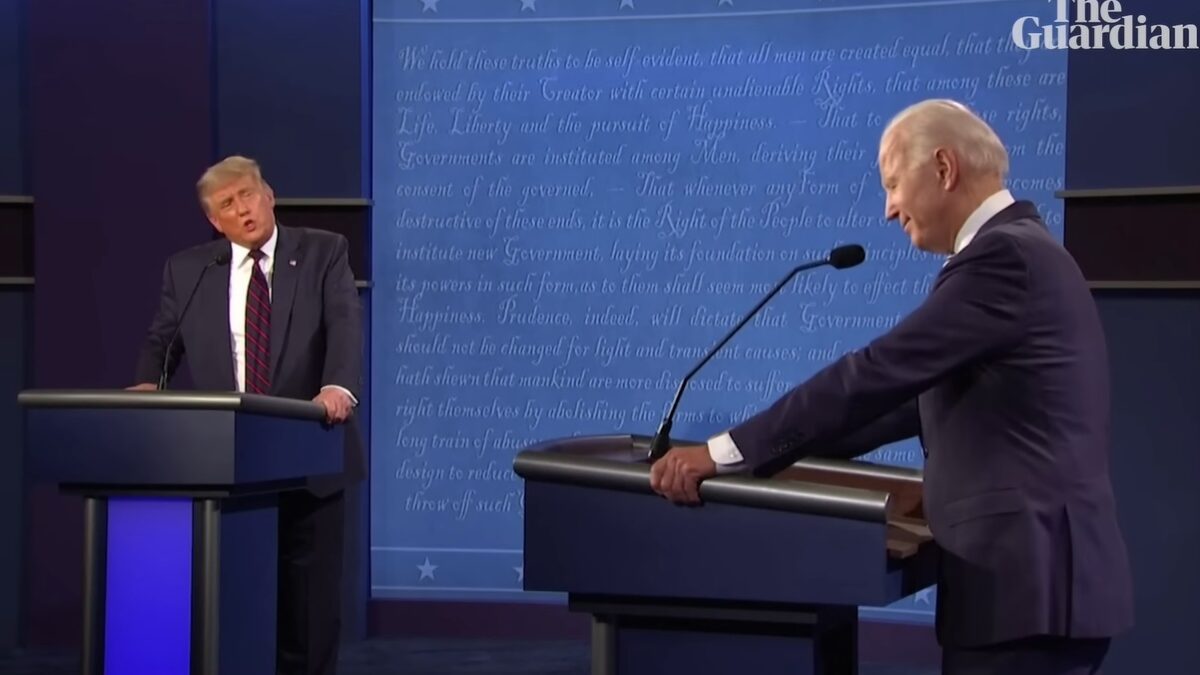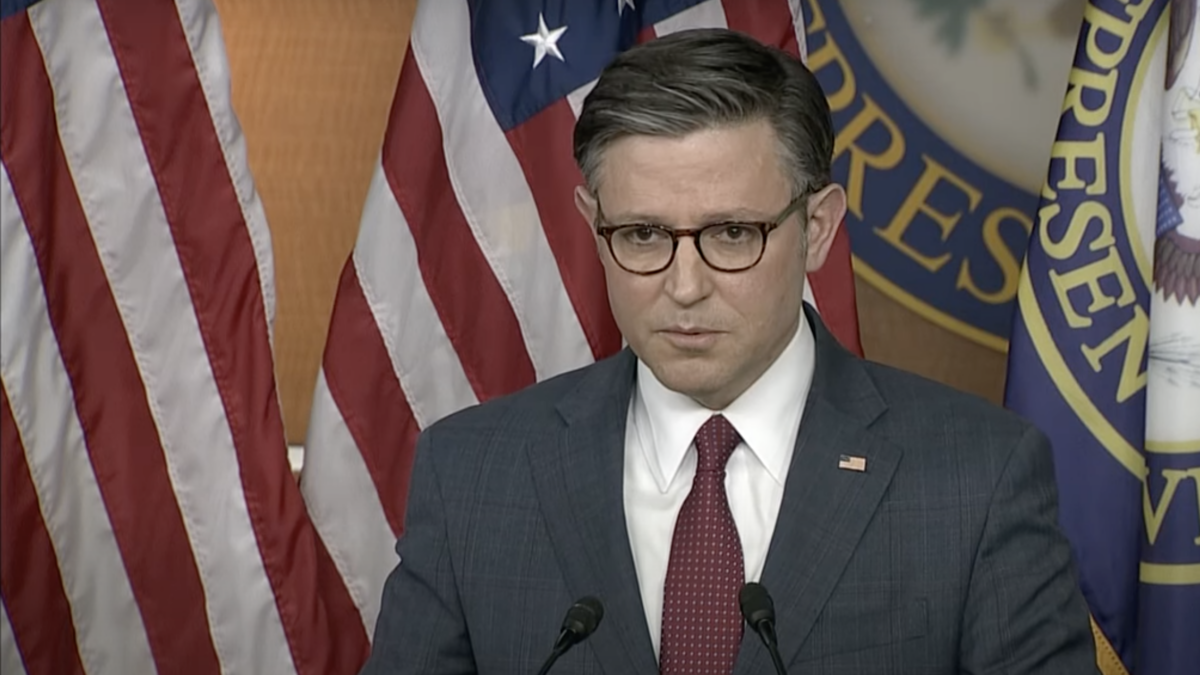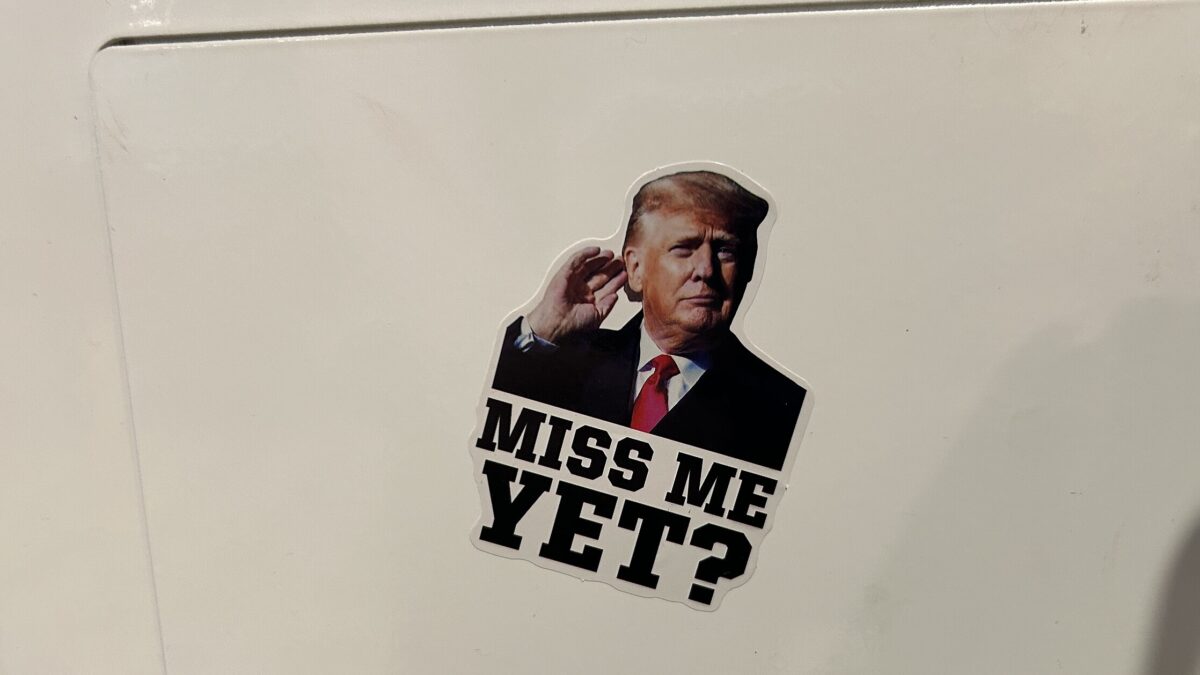
For a nation fighting a 16-year war that long fell off the public’s radar, we sure are hearing a lot about the troops these days. Yesterday afternoon, President Trump asserted that previous presidents sent letters instead of calling Gold Star families after their loved ones were killed overseas, in response to questions about his public silence on the Green Berets killed in Niger last week.
Within minutes, Twitter was full of former Obama administration officials fighting with conservatives about which side treated Gold Star families worse, without any mention of the difficulties those families face or any attempt to honor their sacrifices. The culture war continued unabated; Gold Star families were just the weapon of the day.
At the annual Values Voter Summit last Saturday, Steve Bannon blasted Sen. Bob Corker’s criticism of President Trump, saying Corker “ridiculed a commander in chief while we have kids in the field.” One can certainly take issue with Corker on many levels (and Iran deal opponents do have plenty to say), but framing the issue as a defense of the “kids” overseas is odd, to say the least, and reeks of demagoguery. Bannon’s cynicism is only the latest in a disturbing trend in our political discourse — politicos of all stripes are conflating “support for the troops” and honorable military service with their own political needs and positions.
This tactic occurs in two forms. The first is the approach Bannon embraced last Saturday: framing an opposing political view or political criticism as somehow unfair to the men and women in harm’s way. Of course, some public statements or positions truly are unfair to troops at war on the country’s behalf. (Sen. Harry Reid’s 2007 pronouncement that “the Iraq War is lost,” at the height of the surge no less, comes to mind.) But this is rarely the situation in which the issue is raised.
The most egregious recent exploitation of military values was the Obama administration’s co-opting of the military’s vow to “never leave a man behind” as a justification for trading five senior Taliban terrorists for admitted deserter Bowe Bergdahl. When Republicans and media outlets questioned the circumstances of Bergdahl’s capture, President Obama accused them of “whipp[ing] up a controversy” before pivoting to remarks about letters he received from parents whose children were killed overseas. The unmistakable implication: questioning the wisdom of the exchange was to question the military’s sacred principles.
Honorable Service Isn’t Contingent on Political Beliefs
The Bergdahl affair is far from the only recent example, however. Sen. Chuck Schumer (D-NY) recently protested the Trump administration’s enforcement of immigration law by highlighting the deportation of a service member’s relative. Schumer used the incident to accuse President Trump of targeting military families.
The vast majority of immigration detentions have nothing to do with military families, of course, but New York’s senior senator knew the public would be more sympathetic to a narrative involving military families. Furthermore, the indignant huffing and well-I-nevers would be more believable if they did not often come from individuals who do not know the first thing about what the men and women overseas do daily. If Bannon or Schumer know the name or even the unit of the specialist killed in Iraq by a (very likely) Iranian improvised explosive device two weeks ago, I would be shocked.
The second form of this tactic is arguably worse than the first: the assumption that honorable military service is tied to political behavior you like. Examples of this behavior are becoming more common. Rep. Luis Gutierrez (D-People’s Republic of Chicago) called Trump’s chief of staff, former four-star Marine general John Kelly, a “disgrace to the uniform” after Trump ended Obama’s Deferred Action for Child Arrivals (DACA).
Kelly served 37 years in the Marines and lost his son, also a Marine officer, in Afghanistan. Few men in this country are more honorable than John Kelly. But to Gutierrez, honorable service requires a commitment to social justice progressivism. So, therefore, Kelly’s association with an administration that killed DACA meant he had disgraced what Gutierrez (who never served) decided the military must stand for. That, or Gutierrez is simply a miserable hack — which is distinctly possible.
This maneuver is not confined to the far-left. Online radio host and Twitter personality Bill Mitchell took a rhetorical cheap shot from the back of the crowd at Sen. John McCain Saturday morning, tweeting “[t]he more I see of John McCain the more I believe he was the songbird n Vietnam and sold out his friends. He does that now every day.”
McCain spent four years as a prisoner of war in Vietnam, refusing an early release out of solidarity with his fellow prisoners. Like Gutierrez, Mitchell equated the values the military upholds — honor, integrity, courage — with adherence to conservative political views. And he is no less intellectually dishonest nor less of a hack than Gutierrez.
Support for the Military Is Often Virtue-Signaling
Both of these tactics, the defense-of-the-troops strawman and the false equivalence between military values and one’s own political ideology, are corrosive to public discourse about support for the men and women we send into harm’s way on our behalf. Millions of well-intentioned people truly go above and beyond to support those who serve. I can think of dozens I know personally. But expressing “support for the troops” has become our society’s (and much of conservative media’s) preferred form of virtue-signaling.
On our way back from Afghanistan, my unit flew from Kuwait to Ramstein Air Base in Germany, then to Baltimore-Washington International Airport. On the flight home from BWI, a pleasant, well-dressed man thanked a group of us, expressed his support, then asked where we were traveling from. Upon hearing it was Afghanistan, he responded, “We still have people in Afghanistan? I thought that was already over.” We thanked him and changed the topic, because no one wanted to point out the obvious: how can you support something you don’t even know is happening?
Harmless virtue-signaling from folks like that guy at BWI is not the end of the world. When that virtue-signaling becomes weaponized for political purposes, however, the consequences can be profoundly damaging. At a moment when our military is in a deep readiness crisis and global instability is on the rise, we must be able to discuss true support for the troops with clear minds and level heads.
We can have the culture wars all we want, but let’s leave the military and the men and women overseas out of them. They’re busy fighting a real war. Their only purpose is to win that war and any others we send them to. Nothing more, nothing less.









